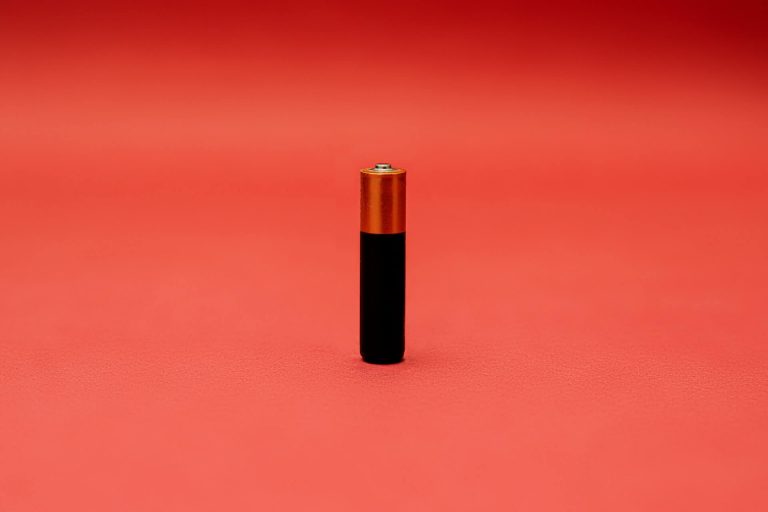Korean battery manufacturers are seeking strategic partnerships with Australian miners as they look to secure stable supplies of critical minerals such as cobalt, lithium, nickel and manganese.
Korean battery manufacturers experience significant growth
Korea’s three major battery makers – LG Energy Solution, Samsung SDI and SK Innovation – have grown significantly over the past year.
The combined global market share of these three Korean companies jumped from 16% in 2019 to 34.7% in 2020. This is due to the rapid growth of electric vehicle markets in major economies across the globe.
Their global production value for secondary batteries amounted to KRW 23.3 trillion (A$27.5 billion) in 2020. The value of production over the last 3 years has been increasing steadily.¹
Figure 1: Secondary Batteries Production Value (South Korea)

Source: Korean Ministry of Trade, Industry and Energy
Korea is heavily dependent on China for battery minerals, but is seeking to diversify its supply chain to overcome potential geopolitical and commercial challenges. Korean companies are advancing strategies to secure a sustainable supply of lithium, cobalt, nickel and manganese in response to the forecast exponential growth of secondary batteries for the EV sector.
Challenges in global critical minerals supply chains
The vulnerability of the current supply chain is clear in cobalt supply and processing. In 2019, around 70% of cobalt was mined in the Democratic Republic of Congo (DRC), followed by Russia (4%), Australia (4%) and the Philippines (3%).
The current dominant cobalt-copper supply chain (from the DRC via South Africa) is increasingly fragile due to ongoing concerns over environmental, social and governance (ESG) risks. The closure of international borders and regional ports to non-essential exports due to the COVID-19 pandemic has also upended global supply chains. On the processing side, an OECD report in 2019 noted that China refined 80% of globally mined cobalt.
Korean battery companies are keen to develop alternative means of supply as global demand for cobalt grows and competition with Chinese battery companies such as CATL and BYD increases. Many Korean companies are exploring strategic partnerships, opening up opportunities for Australian critical minerals producers.
POSCO’s Australian investment strategy
POSCO, South Korea’s largest steelmaker, is an early mover in Korea’s efforts to secure stable supply chains for EV battery minerals through strategic investments in Australian mining projects.
POSCO is building its battery value chains for both anodes and cathodes, prompting further investment across graphite, nickel, cobalt and lithium projects. POSCO is a supplier to LG Energy Solution, Samsung SDI and SK Innovation.
POSCO’s recent investment activity in Australia includes the following:
- In April 2021, POSCO announced it will establish POSCO Lithium Solutions, a joint venture with Pilbara Minerals. The Korean-based JV will invest about $1 billion to build a lithium hydroxide plant in Gwagyang.
- In May 2021, POSCO invested A$320 million in a 30% stake in the Ravensthorpe Nickel Operation, an Australian nickel mining company in Western Australia. Under the long-term offtake agreement, from 2024 POSCO will purchase 7,500 tonnes of nickel as mixed hydroxide precipitate, a key component in the production of EV battery cathode materials.
POSCO is seeking to expand its long-term strategic partnerships for nickel sulphate and cathode precursor to bolster its lithium-ion battery production.
LG’s Australian investment strategy
In June 2021, LG Energy Solution, a subsidiary of LG Chem, invested KRW 12 billion (A$14.2 million) in a 7.5% stake in an Australian-based smelting company, Queensland Pacific Metals (QPM). This will strengthen LG’s supply of key battery materials such as nickel and cobalt. Under the long-term purchase contract, LG Energy Solution will receive 7,000 tonnes of nickel and 700 tonnes of cobalt each year, starting in 2023.
LG Energy Solution also announced plans to produce high-nickel NCMA batteries for the next generation of EVs. The higher the ratio of nickel used in the battery, the more powerful and cost-effective the batteries become.
Kim Myung-hwan, President and Chief Procurement Officer at LG Energy Solution, said, ‘With the rapid growth of the EV battery market, securing key raw materials is also becoming one of the most important sources of competitiveness.’ This confirms the company’s objectives to secure supply chains of core battery materials in the near term.




















